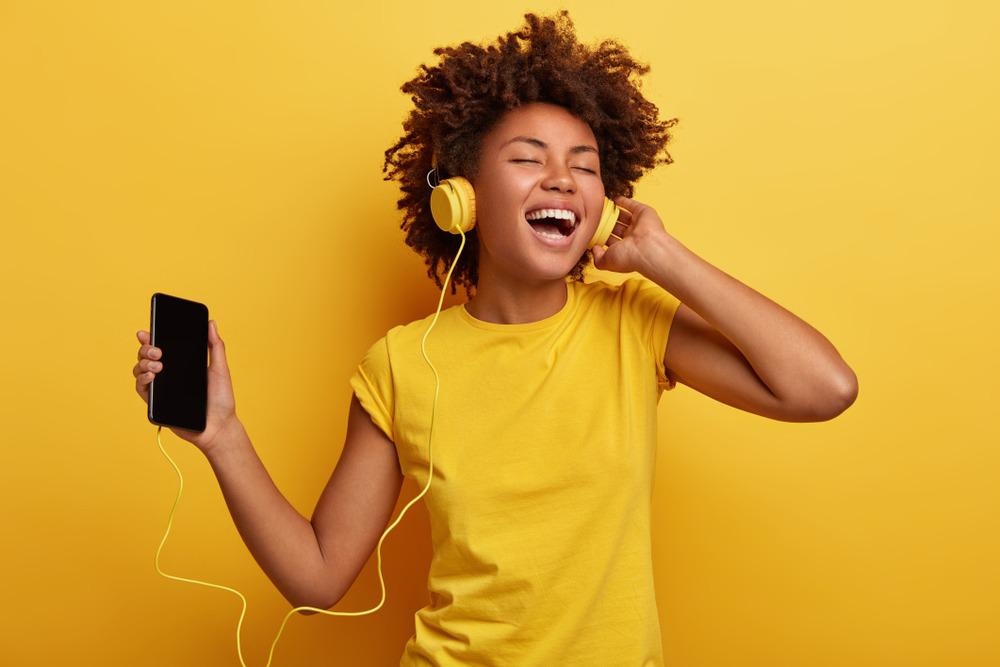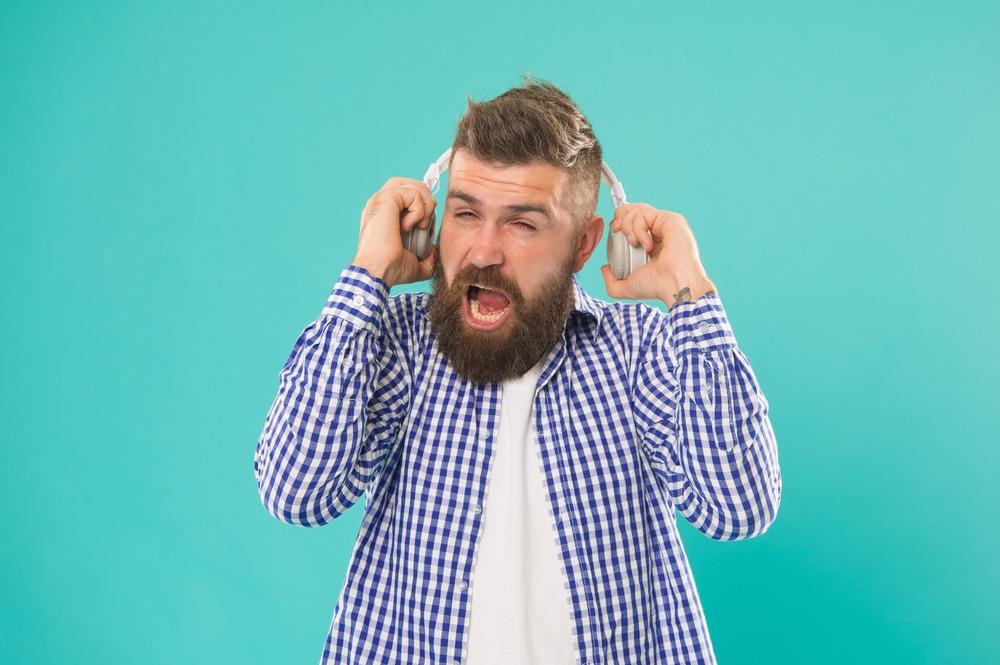Scientists have revealed that noise-induced hearing loss is irreversible. This is because exposure to loud sounds for a substantial period causes fatigue of the ear’s sensory cells. When an individual is exposed to loud noise for a brief period, many times, they experience temporary hearing loss or a ringing sensation in the ear, which is referred to as tinnitus. The hearing improves as the sensory cells recover. Safe listening ensures sound-related entertaining activities without harming one’s hearing.

Image Credit: WAYHOME studio/Shutterstock.com
Can Loud Sound Cause a Loss of Hearing Ability?
When a person is subjected to loud music, such as in a concert, they often experience tinnitus and this condition improves as the sensory cells recover. However, in other instances when a person is exposed to a loud, persistent, regular, or prolonged noise, it causes severe damage to sensory cells and other structures. These damages could cause permanent hearing loss.
The impact of a high-frequency range, i.e., a high-pitched sound, might not be realized immediately. Scientists observed that continued exposure to this frequency of sound could lead to a steady progression of hearing loss, which may ultimately affect speech comprehension. Hearing loss affects the overall quality of life of an individual. Studies have shown that some people are at a greater risk of suffering noise-induced hearing loss than others.
Some conditions that increase the possibility of acquiring noise-induced hearing loss include genetic predisposition, cigarette smoke, and chronic conditions (e.g., diabetes). Hearing loss impacts an individual’s social and educational growth. It also affects their ability to work. Some of the common outcomes of hearing loss are learning disabilities, attention-seeking behaviors, psychological stress, and anxiety. In younger children, noise-induced hearing loss hinders their language acquisition ability.
Scientists have also revealed that exposure to chronic noise in classrooms inhibits academic performance related to reading ability, short- and long-term memory, and comprehension. Inadequate hearing protection during certain activities, such as shooting firearms or listening to loud music during adolescence, increases the possibility of communication difficulty in the later years of life.
What is Safe Listening?
Safe listening predominantly depends on three factors, i.e., intensity, duration, and frequency of one’s exposure to loud noise. These three factors constitute the overall levels of sound energy that an individual’s ears are subjected to. Scientists have revealed that the total amount of sound energy a person can safely receive is constant. Hence, the same amount of energy can be introduced to a person at a lower intensity, i.e., decreased volume, for a prolonged period, whereas, louder sounds can only be perceived for a short duration.
Permissible Levels of Daily Exposure to Noise
The permissible level of daily noise exposure has been determined based on the total permissible ‘dose’ of sound. Researchers have suggested eighty-five decibels (dB) to be the highest safe exposure level up to a maximum of eight hours. Typically, the permissible exposure level of sound is calculated for occupational settings and recreational settings.
The permissible duration of safe listening decreases as the volume of sound increases. For instance, if the sound is 100 dB, which is as much sound generated by a subway train, a person can be exposed to this noise safely for only fifteen minutes each day.
Very few people are aware of or practice safe listening. Typically, users of personal audio devices set the volume between 75 and 105 dB. At discotheques and nightclubs, the average sound levels range between104 to 112 dB, and noise levels at a pop concert can rise even higher. Noise levels generated at sporting venues, such as football and cricket grounds, ranging from 80 dB to 117 dB. Even a brief duration of exposure to a high-decibel level of sound can be harmful.

Image Credit: Just dance/Shutterstock.com
How to Prevent Noise-induced Hearing Loss?
Several methods can be implemented to prevent noise-induced hearing loss, which is discussed below:
(a) Lowering the volume: Studies have shown that even a small reduction in volume offers significant protection. The use of earplugs in places with high volume settings, such as nightclubs and discotheques, or reducing the volume while listening to personal audio devices could be beneficial. Several studies have shown that well-inserted earplugs can reduce exposure by 5 to 45 dB.
The use of noise cancellation earphones and headphones is designed in such a way that music can be heard clearly at a lower volume. Additionally, as it eliminates the background noise, the user will be more inclined to reduce the volume.
(b) Restricting time spent in a noisy environment: The duration of being exposed to loud noise could be minimized by taking short listening breaks. In a noisy venue, people should keep far away from the source of the sound (e.g., loudspeakers). Additionally, limiting the daily use of personal audio devices to less than one hour per day could reduce the level of exposure, substantially.
(c) Monitoring safe listening levels: People must be better informed regarding the benefits of safe listening. Smartphone technology could be effectively used to monitor the exposure levels and inform users regarding the risk of developing noise-induced hearing loss. A user-friendly application could be developed which could monitor the intensity levels in decibels and indicate if the level is risky.
(d) Paying heed to the signs of hearing loss: When an individual suspects hearing loss, for instance, having difficulty in hearing alarm clocks, doorbells, or telephones, one should seek medical help immediately.
Sources:
- Make Listening Safe. (2022) [Online] Available at: https://www.who.int/
- Healthy headphone use: How loud and how long? (2020) [Online] Available at: https://www.health.harvard.edu/blog/healthy-headphone-use-how-loud-and-how-long-2020072220565
- Safe listening devices and systems: a WHO-ITU global standard. (2019) Geneva: World Health Organization and International Telecommunication. [Online] Available at: www.itu.int/.../Safe_listening_standard.pdf
- Innovation in Augmented Listening Technology. (2019) [Online] Available at: https://publish.illinois.edu/augmentedlistening/how-loud-is-my-audio-device-thinking-about-safe-listening-through-the-new-who-itu-standard/
- Gallagher, J, (2015) Cut music to 'an hour a day' – WHO. [Online] Available at: https://www.bbc.co.uk/news/health-31661789
Further Reading
Last Updated: Mar 31, 2023